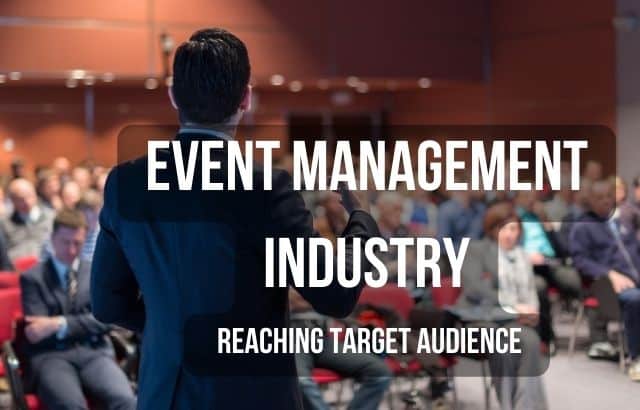In today’s world, people have a penchant for grand and extravagant events. The super-rich spare no expenses to make their gatherings extraordinary, while even smaller event management firms have found success through innovation and occasional repetition. Event management thrives on the synergy of creativity and ingenuity, especially when orchestrating affairs for the elite.
The primary goal is to create events that leave a lasting impression, whether they cater to high-profile social gatherings or formal corporate functions like conferences, press conferences, and customer engagement events. The latter is characterized by precision and a focus on enhancing both B2B and B2C services.
Well-executed events receive positive media coverage, and within the glamorous world of showbiz, social influencers are quick to spotlight events that captivate their audience. Ultimately, the objective is to convey the underlying message to all stakeholders.
This industry heavily relies on word-of-mouth publicity, as the satisfaction of consumers significantly impacts the future prospects of event management companies.
Recently, event management companies have become indispensable across various sectors. A meticulously organized event brings joy to all involved parties. Just like any other business, the event management sector can benefit from the expertise of corporate business consultant and astro strategist, Hirav Shah. Shah offers reliable solutions to help event management companies expand their operations.
Let’s check out some FAQs related to this much sought-after industry…
Table of Contents
1) What exactly is event management?
Event management can be described as a process through which events are conceived, planned, created and assessed. Events are conducted through project management, through well-thought out plans and tasks.
2) What is the role of event management?
Event managers plan and organise promotional, business and social events. They’re responsible for running a range of events, ensuring the target audience is engaged and the message of the event is marketed properly. Events play a huge part in the success of a brand or an organisation. Today, it is almost inconceivable to organise a large scale or even a small scale event without an event management team.
3) What are the types of event management?
Event management involves planning, organising and execution of live events. Different event management services include brand/ products launch, an exhibition, a concert, a conference. It could include organisation of personal or professional events.
4) What is the meaning of event management?
Event planning includes deciding on timelines, selection and finalising event venues, getting the requisite permits, planning for food, taking care of coordinating transportation, coming up with a theme, arranging for activities, selecting speakers and keynotes, arranging the equipment and facilities, managing risk and developing a master plan to make sure each segment of the entire process goes on smoothly without any last-minute hiccups.
5) What are the 5Cs of event management?
Concept – the first step for planning a successful event
Coordination – It is about planning a properly planned schedule.
Control – To have complete control over the happenings till the very end.
Culmination – To ensure that the event has a neat and planned culmination.
Closeout – Wrapping up the event in great style, be it an industry based event or a grand wedding or mega entertainment event.
6) What are the two types of events?
Event types can be marked into corporate, private of charity events. Corporate events focus mainly on businesses and their customers, while private events are more recreational and charity events are for philanthropy.The best corporate events have clear-cut and achievable goals.
7) What are the five stages of event planning?
The different phases of event management include initiation of the event, thorough planning and detailed planning, perfect implementation, the actual event and a successful closure.
8) How do event planners work?
An event planner structures an event, coordinates all of the moving parts, and makes sure everyone has a good time. Also called convention and meeting planners, they do everything involved in making sure these events go smoothly, including choosing locations, hiring caterers, entertainment, and other vendors.
9) What are the 10 things to consider during event management?
● Set event objectives: To begin with, it is important to answer questions like, what is the purpose of the event? What experience or feel do the event managers want the people to have? Planning an event is next to impossible without clear planning. A clear understanding of objectives can be key to successful event management.
● Planning budget: Effective budget planning minimises risk. It is easy to deliver a great event with an unlimited budget, but the challenge is to make the best event out of a constrained budget.
● Know your target audience: Whatever is the type of event management, it is important to identify your target audience. It is key to building an event around them. The main objective of event management has to make the audience aware about a product or service.
● Timelines: It is rather crucial to determine what has to happen and when. All large events involve complex time management, scheduling and coordination of other people’s activities, such as venue preparation, catering, digital and technological setup.
● Finding the right venue: Zeroing on an ideal venue may seem easy. But the importance of finding the right venue should not be underestimated. This step involves research, contract, cost negotiation and building working relationships.
● Managing suppliers or vendors: Each event requires a lot of suppliers. From caterers to lighting, diverse suppliers need contacting, short-listing, negotiating costs and finalizing contracts. After this, it is equally important to make sure that all suppliers fulfil their roles on time and within budget. This is vital for the success of any event.
● Marketing and communication: Delivering to an audience requires marketing the promise of what the event will deliver. Of late, it involves reaching out to target audience through direct mail, social media and digital marketing.
● Thinking sustainability: It is vital to consider the social and environmental impact of an event. This is a crucial point in today’s time and age.
● Risk management: Event management can turn complex as having multiple elements contributing to an event also means various possible points of failure. It is important to understand the risks, develop a robust contingency plan lest problems arise is a non-negotiable task in event management.
● Backup plan: whatever the size of event you are planning, it is best to have a contingency plan in place.
10) What are the types of events in general?
There are many types of events. For example,
● A speaker session (a guest speaker presentation, panel discussion, etc.)
● Networking sessions.
● Conferences.
● A seminar or half-day event.
● Workshops and classes.
● VIP experiences.
● Sponsorships.
● Trade shows and expos.
● Awards and competitions
● Festivals and parties
● Latest: Webinars
11) Is event planning a good career option?
The most important part of being a successful event planner is your ability to maintain your composure. Things can go wrong, and they often do. A career in event planning can be challenging, but it can be a lucrative job with strong growth potential in the future.
12) How to start an event management business?
1. Gain event planning skills and experience.
2. Determine your event planning market/ forte.
3. Develop a business plan.
4. Designate which business entity fits best for your firm.
5. Obtain business insurance.
6. Develop your network of suppliers and staffing resources.
7. Define your event planning services.
8. Have an event planning fee structure.
9. Secure funding for your business.
10. Focus on business development and marketing of your business.
13) What is the global event management industry worth?
The global events industry size was valued at $1,100 billion in 2018, and is expected to grow at a CAGR of 10.3% to reach $2,330 billion by 2026.
14) What is Indian event management industry worth?
The India Event and Exhibition Market size is expected to grow from USD 4.83 billion in 2023 to USD 7.20 billion by 2028, at a CAGR of 8.31% during the forecast period (2023-2028).
“Event industry is indispensable to a variety of industries.” concludes Business Strategist Hirav Shah.



































